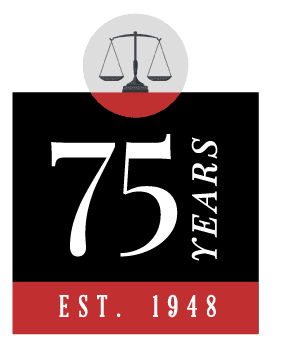If you’ve been arrested and are facing criminal charges, the first question you may be asking yourself is, “Is it possible to have this case dismissed?” You may be surprised to find out that the answer could be yes if you hire Lubbock-based Chappell, Lanehart & Stangl criminal defense.
Criminal charges — even felony criminal charges — can be dropped or dismissed in Texas, and they often are.
In Texas constitutional county courts, or courts established directly by the state constitution, nearly half of the 34,000 disposed criminal cases in constitutional county courts were dismissed in 2022, continuing a trend from 2020-2021 where dismissal rates spiked to 49 percent from an average of 42 percent over the previous decade.
 And in the Texas statutory county courts, or courts established through the state legislature, fully half of more than 320,000 criminal cases were dismissed in 2022 — up a large amount from a 37 percent dismissal rate compared to 5 years ago.
And in the Texas statutory county courts, or courts established through the state legislature, fully half of more than 320,000 criminal cases were dismissed in 2022 — up a large amount from a 37 percent dismissal rate compared to 5 years ago.
 Chappell, Lanehart & Stangl understands how Texas law works. We have the knowledge and experience to help you navigate the legal system and we can argue effectively for dropped or dismissed charges.
Chappell, Lanehart & Stangl understands how Texas law works. We have the knowledge and experience to help you navigate the legal system and we can argue effectively for dropped or dismissed charges.
If you have been charged with a crime in Lubbock, contact our lawyers to evaluate your case and give you a personalized legal plan. Our case results include:
- Possession of Drug Paraphernalia and Fake Driver’s License Dismissed
- Marijuana Possession Charge Ends in Case Dismissed
- Sexual Assault Case Dismissed for Client of Fred Stangl
- Chuck Lanehart Negotiates Pretrial Diversion for Possession of Controlled Substance
Hire An Experienced Criminal Attorney
A lot of people face criminal charges for unfair or invalid reasons. At Chappell, Lanehart & Stangl, we know how to get a case dismissed and will fight for you so you can avoid facing the emotionally and financially devastating repercussions of a conviction, incarceration and a permanent record.
We will use our substantial resources to get you the best possible outcome in your case. We dedicate ourselves equally to each client because we are more than attorneys, and you are more than an accused citizen. As always, the first consultation is free, so please feel free to set up an appointment to visit with Chuck or Fred.





